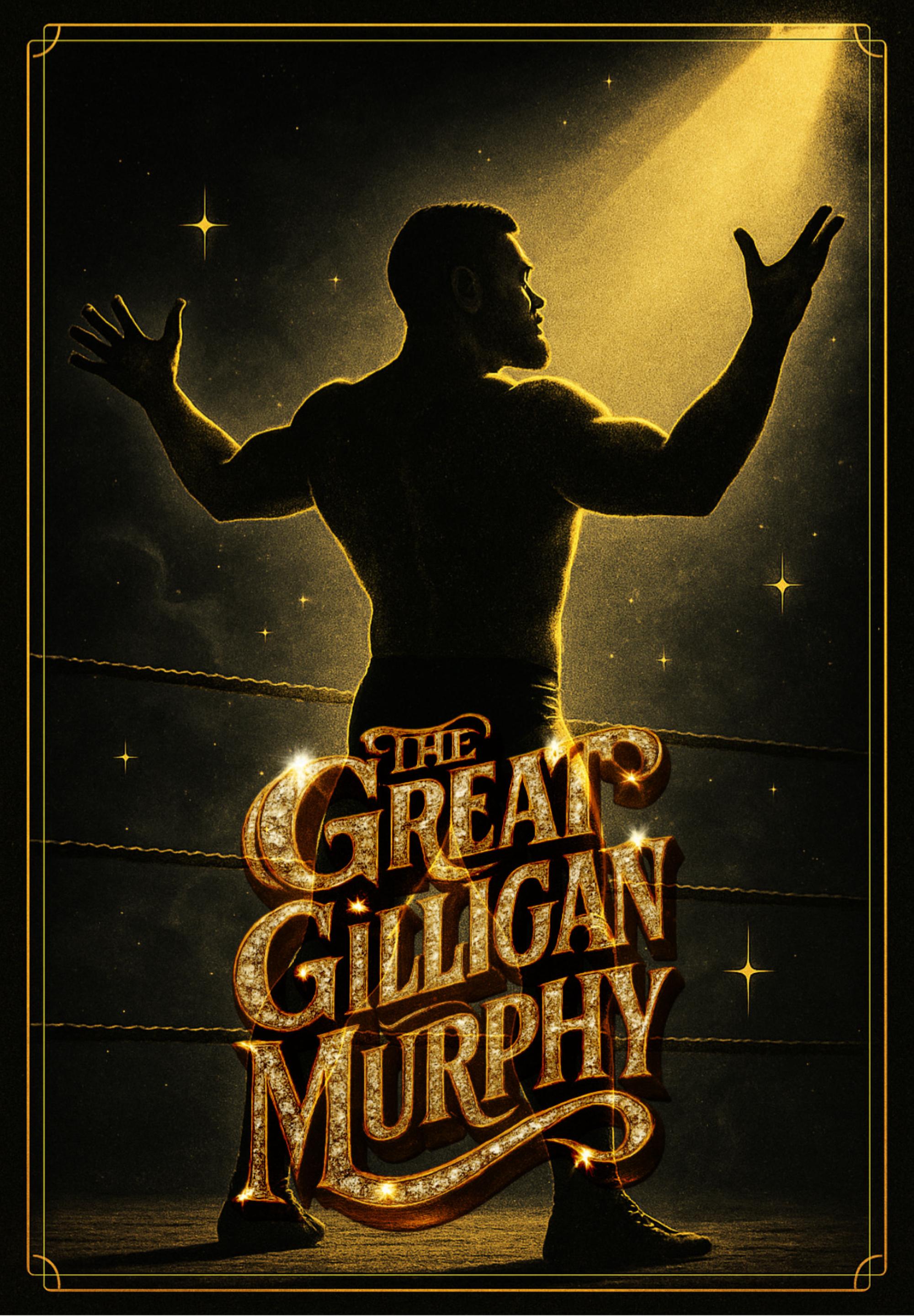
Synopsis/Details
Gilligan Murphy was never supposed to make it. Raised in the shadows of poverty, grief, and a broken home in North Carolina, he grew up angry, sensitive, and desperate to be seen. After losing his mother and watching his older brother Antonio spiral into addiction and an early death, Gilligan buried the pain and reinvented himself—not into a better man, but into a myth.
That myth was “The Great Gilligan Murphy,” a charismatic, sharp-tongued, larger-than-life wrestling persona who stormed the indie scene with unmatched presence and unapologetic ego. But behind the curtain, Gilligan was anything but great. He lied to friends, sabotaged careers, and drank himself into a version of success that was fueled by painkillers, late-night parties, and crowd validation he mistook for love.
As his star rose, so did his self-destruction. He pushed away the people who tried to help him. He manipulated promoters, politicked his way into main events, and made enemies in every locker room he entered. To the fans, he was magnetic. To those who knew him, he was a cautionary tale—a broken man clinging to the illusion of greatness while becoming everything he once swore he’d never be.
The story doesn’t follow Gilligan’s rise to glory—it follows the cost. We watch him alienate his girlfriend, betray his closest friends, and refuse to face the childhood wounds that made him who he is. Over time, the character consumes the man. When the cheers fade and the lights go out, Gilligan is forced to confront the truth: he was never the underdog. He was the villain in his own story, and there might not be anything left to save.
But even villains have ghosts. And sometimes, the only redemption left is not about winning back the crowd—but facing the person you’ve become when no one’s watching.
Story & Logistics
Story Situation:
All sacrificed for passion
Story Conclusion:
Bitter-sweet
Linear Structure:
Linear
Moral Affections:
Bad Man, Disrespect, Gluttony, Guilt, Illegality, Punishment, Respect, Reward, Selfishness, Wrong
